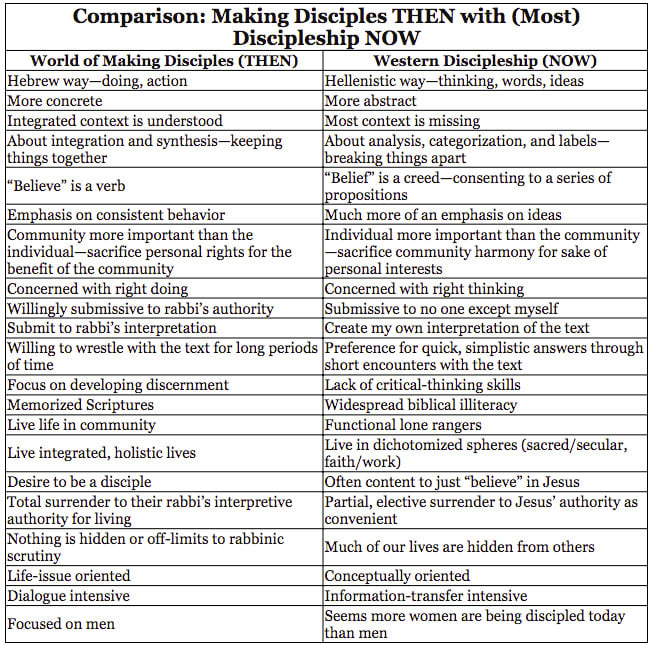iftodiam sennontitus.医圈 | en.dopl3r.com
Ah, another one of those nebulous terms like “the gospel”. You often hear in Christian circles someone say that they shared “the gospel” with someone else. It is then assumed that you know what that person actually shared with the other person. But you don’t. That’s the problem with assumptions.
The same goes for using the word disciple. I was recently in a church service where the preacher asked the congregation, “What is a disciple?” I remember one person responding something to the affect:
“They are someone who moves in the power of God and revolutionizes the world.”
While that will certainly be the effect of being a disciple of Jesus, that is not a disciple.
So, what does Merriam’s Webster dictionary have to say?
Wow. It’s surprising how well this highlights how our problem with correctly defining this word in English has profoundly impacted us actually carrying out The Great Commission in America. According to Merriam Webster, the twelve disciples were just “accepting and assisting in spreading the doctrines of Jesus.” And, in a sense, that is very true. But that’s not what makes them a disciple.
This definition highlights the problem of taking a concept from one culture and adding the assumptions of another culture. We don’t have a grid in our western culture for what a disciple is. So, we put it into the grid of our educational systems and what it means “to know” or “to follow”. Which, with social media, the phrase “follow” has even taken on different meanings. Should I just like Jesus’ Facebook page and call it good? I’m following him, right?
“Like other rabbis of his day, Jesus had disciples called talmidim. The disciples’ deepest desire was to follow their rabbi so closely that they would start to think and act like him. “
– Ray Vanderlan, “To be a Talmid” from That the World May Know
This is interesting. In Jesus’ day it was about a deep desire to literally following your rabbi so closely that you would become like them. This was the method of education. The closest grid we have for this in our western culture is the relationship between a parent and a child.
It’s a little hard to literally follow Jesus around today. However, God made a change of address to still make it possible.
“But you will receive power when the Holy Spirit comes on you; and you will be my witnesses in Jerusalem, and in all Judea and Samaria, and to the ends of the earth.” Acts 1:8
By having the Holy Spirit with us and God’s written word we can still follow Jesus. And the heart of a disciple is forever the same:
“In the heart of a disciple there is a desire, and there is a decision or settled intent. The disciple of Christ desires above all else to be like him…
Given this desire, usually produced by the lives and words of those already in The Way, there is yet a decision to be made: the decision to devote oneself to becoming Christlike. The disciple is one who, intent upon becoming Christlike and so dwelling in his ‘faith and practice’, systematically and progressively rearranges his affairs to that end. By these actions, even today, one who enrolls in Christ’s training, becomes his pupil or disciple.”
– Dallas Willard, The Cost of Nondiscipleship, in Devotional Classics

Such a great comparison between then and now! This will be a great tool for #WestminsterBackcountry! Thank you SROM!
You are very welcome Bill!